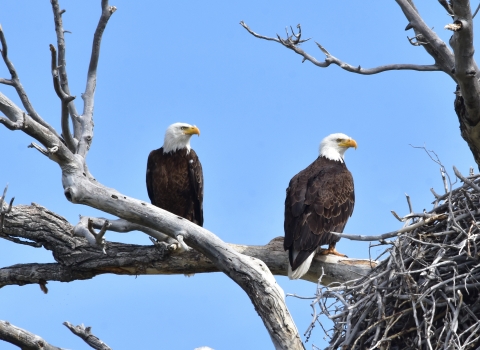Pollinators are Pretty Important
Bees, bats, butterflies, beetles, ants, flies, moths, hummingbirds and many other animal species are known as pollinators because they carry pollen from flower to flower, which in turn fertilizes the plants to produce seeds, fruits and the next generation of plants.
There are more than 200,000 species worldwide that pollinate flowering plants and agricultural crops. In fact, pollinators play a part in producing 1 out of every 3 bites of food consumed including berries, melons, apples, tomatoes, pumpkins, almonds, alfalfa that dairy cows eat, edible oils from sunflowers and safflowers, spices, coffee and yes, chocolate.
In addition, pollinators are connected to other kinds of resources we use in our daily lives such as natural fibers like cotton and medicines. All told, pollinators help produce approximately $40 billion worth of products around the world each year.
Pollinators are also culturally important to Native Peoples for their cultural symbolism and for supporting food and medicinal plants and plant-based dyes.
And, because of their vital role in the life cycle of plants, pollinators contribute to healthy habitats that other wildlife species depend on for food and shelter and that people depend on to prevent soil erosion, support clean water and help filter the air we breathe.
We’re Helping Pollinators in Peril
Across North America, pollinator populations are changing and some species, including monarch butterflies and bumblebees, are in trouble and declining. There are more than 70 species of pollinators listed as endangered or threatened right now.
Many pollinator populations are losing the food and nesting habitat that they need to survive as a result of human encroachment, invasive plants and disease-causing organisms, improper use of pesticides and climate change climate change
Climate change includes both global warming driven by human-induced emissions of greenhouse gases and the resulting large-scale shifts in weather patterns. Though there have been previous periods of climatic change, since the mid-20th century humans have had an unprecedented impact on Earth's climate system and caused change on a global scale.
Learn more about climate change . Suitable habitat patches are getting fewer and farther between and that’s not good for pollinators that need to overcome distances to reach better sites.
The Service is committed to helping pollinators by strengthening pollinator health, restoring or protecting their habitats and addressing threats through research, on-the-ground field work and proactive conservation with Federal, State, Tribal and non-governmental partners and private landowners.
For example, we are working to support federally recognized Tribes in their efforts to preserve indigenous cultures and traditions while restoring pollinator habitat. Service staff are facilitating pollinator habitat conservation on military lands, assisting private landowners in pollinator conservation activities through successful collaboration on working lands and more.
Who can resist the beauty of a nature stroll? Many of our National Wildlife Refuges and National Fish Hatcheries have pollinator trails and gardens too. Check your local refuge or hatchery or local area to see if there is a pollinator garden near you to visit.
Learn more about pollinator conservation.
Bee part of Pollinator Week
Pollinator Week is for everyone! Here are some ways you can bee-friend pollinators this week and throughout the year:
- Plant a pollinator-friendly garden using native flowers and use pesticides responsibly.
- Support local beekeepers and farmers by buying local honey and locally produced organic food.
- Provide nesting sites for butterflies, bees, bats and hummingbirds.
- Tag your social media #PollinatorWeek and tell others about pollinators and how they can help.
- Support pollinator conservation actions in your hometown and get kids involved!






